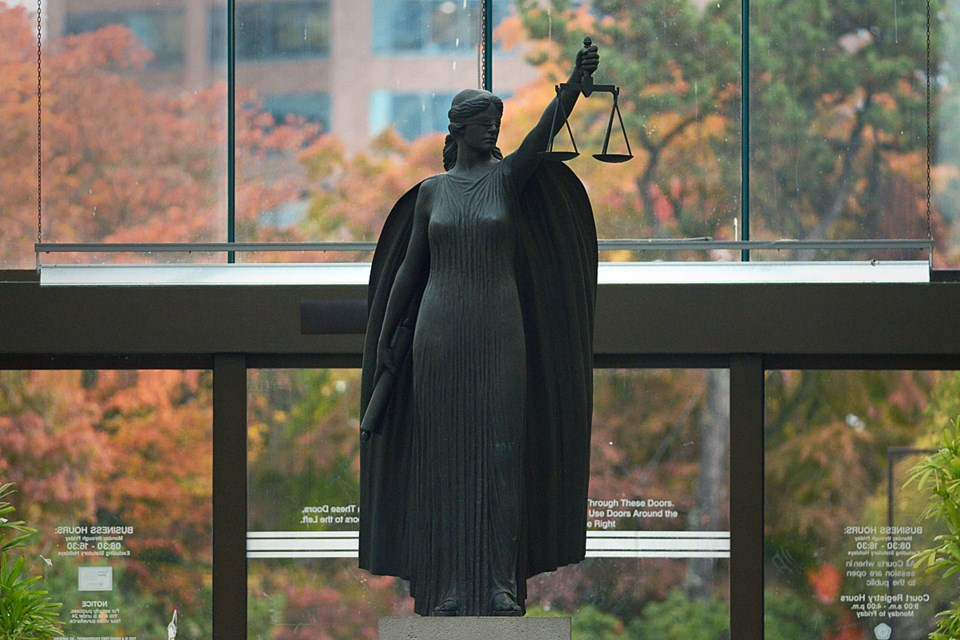A drunk driver who killed a 69-year-old grandmother in North Burnaby four years ago got his driver's licence back this week thanks to a legal "absurdity" that is up to Parliament to fix, according to the B.C. Court of Appeal.
On June 7, 2019, New Westminster resident Roberto Francisco was driving 167 kilometres per hour on Lougheed Highway near Brentwood Mall with a blood-alcohol level twice the legal limit when his BMW jumped the curb and slammed into 69-year-old Louise Landreth, killing her.
Landreth, a retired Harrington, Ont. accountant, had been on a walk during a visit to family living in the area.
Francisco pleaded guilty in January 2022 to criminal negligence causing death and sentenced in February 2022 to four years in prison and a four-year driving ban.
At his sentencing, Francisco agreed a driving ban was appropriate, albeit a two-year ban.
After being released from custody in less than a year, however, Francisco appealed the ban, arguing the judge had no jurisdiction to impose it.
The B.C. Court of Appeal agreed.
In a ruling Thursday, the court set aside the driving ban, ruling the judge had erred in imposing it.
At issue was a 2018 Criminal Code amendment (Bill C-46) designed to create a stronger approach to punishing driving offences.
As part of the amendment, a section governing discretionary driving bans was replaced.
The new section in the Criminal Code states the court can impose a driving ban on a person who's been convicted of certain driving offences.
But criminal negligence causing death, the offence Francisco pleaded guilty to, was not included on the list.
"It is a scheme that does not include the offences of criminal negligence causing death, criminal negligence causing bodily injury or manslaughter, all of which did appear in the former (section of the Criminal Code)," states the ruling, written by Justice Ronald Skolrood
The ruling noted the Ontario Court of Appeal had said the failure to include those offences had led to an "absurdity," namely that driving bans can be imposed for less serious offences, such as dangerous driving, but not for the more serious offence of criminal negligence causing death.
"The more serious the offence becomes, the less available the (driving ban) becomes," stated the ruling, quoting the Ontario court.
In a unanimous ruling, the B.C. appeals court ultimately agreed with the finding of the Ontario court, saying the new section in the Criminal Code "cannot be read as permitting the imposition of a driving prohibition upon a conviction for criminal negligence causing death."
"Though this interpretation has the effect of making a driving prohibition unavailable for the more serious offence but available for the lesser offence, this drafting error, if it is indeed one, falls to Parliament and not the court to correct," stated the ruling.
Francisco’s appeal was allowed and his driving ban set aside.
Follow Cornelia Naylor on Twitter @CorNaylor
Email [email protected]




